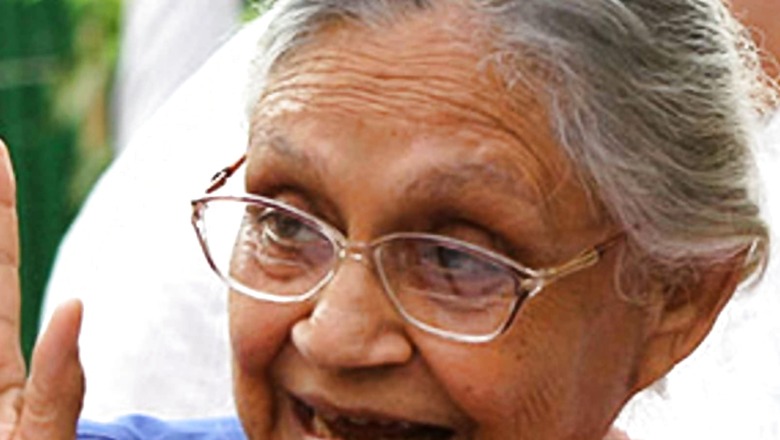
views
The union cabinet has approved the reunification of the three municipal corporations of Delhi (MCDs), in a decision that will alter the political and power equations in the national capital. This would mean that the unified civic agency will be eligible to get funds directly from the Centre and will not have to depend on the Delhi government.
The decision has triggered a political slugfest just ahead of municipal corporation elections that would have been announced by now if not for the Centre’s decision of unifying the three civic bodies. Delhi’s ruling Aam Aadmi Party is claiming that the Bharatiya Janata Party’s nervousness has prompted the move.
https://twitter.com/Saurabh_MLAgk/status/1506199055155703815?s=20&t=NzCfSPPXfuNtEDLsU31OnQ
The Bharatiya Janata Party though is accusing the AAP government of starving the corporations ruled by the saffron party of funds, thereby stalling the civic services it is supposed to provide to the people and then blaming the BJP for poor governance during elections.
There are mainly five local bodies in the national capital: the North, East and South Delhi municipal corporations, the Delhi Cantonment Board and the New Delhi Municipal Council.
It was in January 2012 that the trifurcation of the erstwhile unified MCD began during the tenure of late chief minister Sheila Dikshit.
Mayor’s nest
The reunification of the corporations is being seen as an attempt to prevent arm-twisting by the Delhi government if there is an opposition party ruling the MCD. This would also mean a change in the power dynamics as the sole mayor of Delhi would be a parallel power centre to the chief minister.
Many old hands in the Congress and BJP had argued that late CM Sheila Dikshit did not like that the mayor wielded so much power and wanted to dilute it through the division.
Ask Ramesh Bidhuri, BJP MP from South Delhi, why the trifurcation was done and pat comes the reply: “Sheila Dikshit caused the split of the Municipal Corporation of Delhi due to political reasons. She didn’t want to allow any Congress leader to grow in the national capital and there have been some powerful Congress mayors that the city has seen.”
Bidhuri believes that the reunification is necessary as Delhi’s demography isn’t the same everywhere.
Manoj Tiwari, BJP’s North East Delhi MP, welcomed the decision of unification. “We should know that the east and north civic bodies didn’t earn enough revenue. The decision of trifurcation was political and not for the welfare of the residents. By the unification we would be able to streamline revenue and payments,” he said.
Talks of mayoral elections
There are deliberations in the government to hold mayoral elections along with that of councillors, sources informed.
This, they stated, would further accentuate the powers of the mayor in the capital.
Game of zones
The reason given for the trifurcation by the Sheila Dikshit-led Congress government was to serve the people of the city well by decentralising the services. However, the last commissioner of the unified municipal corporation, KS Mehra, strongly countered the rationale.
Speaking with News18.com, Mehra said, “Trifurcation did more harm to Delhi than good. I do not take that as a correct statement as the corporation was working more efficiently prior to trifurcation and in so far as the argument of decentralising of services is concerned, there used to be 12 zones during the unified corporation and even now there are 12 zones. So to say people do not have to run around long distances to get the services is wrong. That decentralisation was already there; deputy commissioners enjoying delegated power of the commissioner.”
What did trifurcation actually achieve?
According to Mehra, the trifurcation increased the expenditure on staff.
“Now there are three mayors, three standing committee chairpersons, three commissioners and their staff and everything is tripled and so is the expenditure. It definitely does not mean efficient services,” he added. With a deficit in the budget, the three corporations depend heavily on the Delhi government for funds.
The way forward
According to Mehra, the reunification of the corporations is the correct decision. “To restore the status quo as it existed prior to May 2012 is important in many ways. It would ensure that the resources of the corporation are optimally utilised and areas that have less potential are given attention. They suffer because of a lack of funds. The employees will get their salaries and wages on time and, in turn, ensure civic services are available to the citizens without any break,” he explained.
Read all the Latest Politics News and Breaking News here



















Comments
0 comment